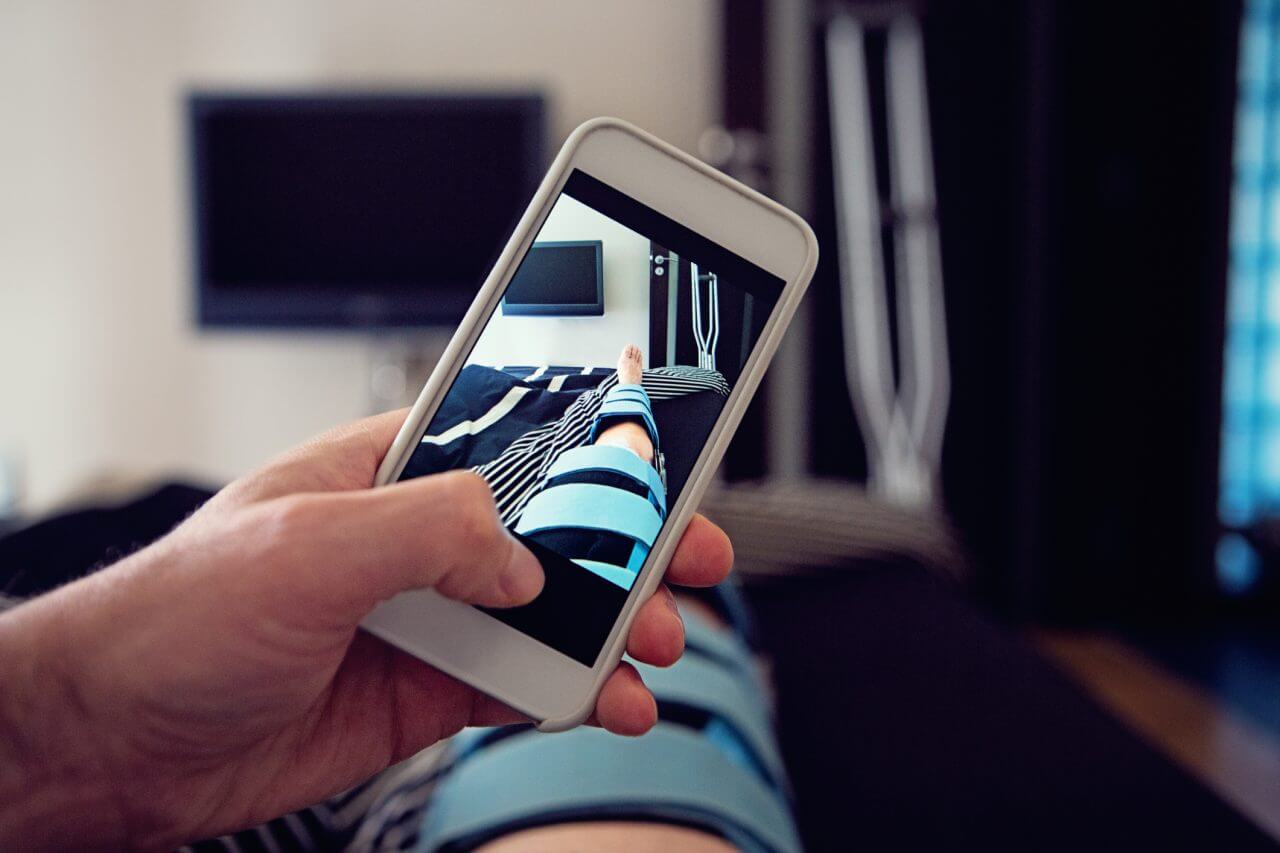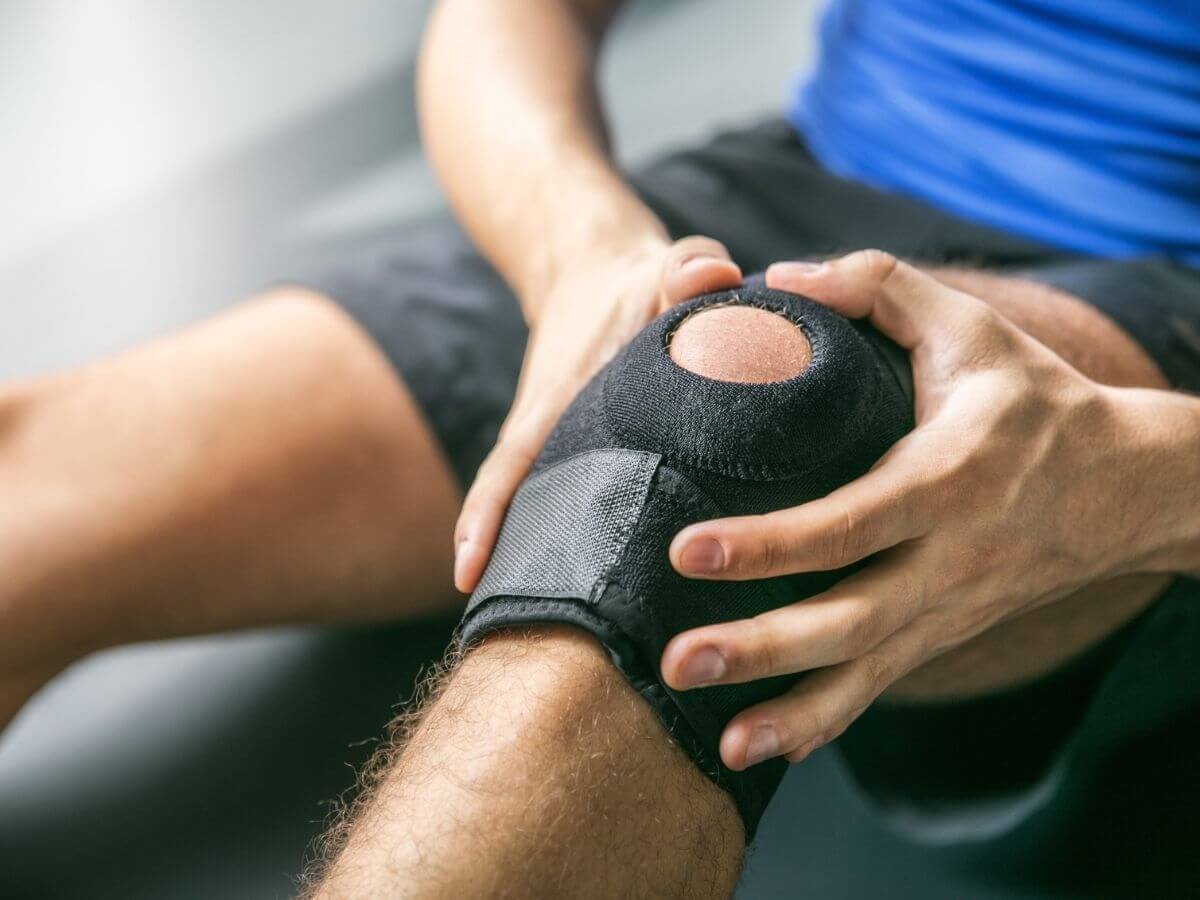ACL Surgery Recovery

If you’re facing or have recently had surgery to repair the ACL (anterior cruciate ligament) in your knee, you’re probably wondering what your recovery will look like.
As you know, ACL reconstruction is performed to replace a torn ACL — an injury that can happen to anyone, but that’s most common in athletes who play sports like football, basketball, soccer, and volleyball that involve sudden stopping and starting, pivoting, and other movements that put stress on the knee. It’s typically outpatient surgery, meaning you won’t have to stay in the hospital. But it’s a significant procedure, nevertheless.
What Are the Possible Complications from ACL Surgery?
ACL reconstruction is a straightforward and well-understood surgery. Still, complications are possible with any medical procedure. Infection, bleeding, ongoing knee pain, and loss of range of motion are rare, but they do occur. Closely following your doctor’s orders helps minimize the risk of complications.
How Soon After ACL Surgery Does Rehab Begin?
The short answer to this question is: Almost immediately. In most cases, patients begin rehab exercises the same day as their surgery once they recover from anesthesia. This includes getting comfortable walking with the help of crutches.
As part of your recovery and rehabilitation, you’ll use ice and elevation of your knee to control swelling. You’ll also take over-the-counter and/or prescription medication for pain control. Staying “on top of” your pain is important, not only because nobody likes to be in pain, but also because it enables you to work harder on your exercises.
You’ll likely see a physical therapist who will teach you the rehab exercises you’ll do to strengthen the muscles around your knee. The therapist and your doctor will create a rehab plan for you, and you must follow it to achieve the best possible outcome following your surgery.
Take Control of Your Health
Wondering what your knee and hip pain means? Or what you can do to alleviate that pain? Take this free online knee and hip assessment to find out how well your joints are functioning and how joint pain affects your quality of life. Get started now.
What’s the Focus of the First Few Weeks of Rehab?
Initially, the focus of your rehab will be on decreasing the swelling in your knee and regaining knee extension (meaning the straightening of your leg). The ice and elevation help with this, as does riding a stationary bike if that’s part of your rehab plan. Later, you’ll focus on increasing your knee flexion, or how far you can bend your knee.
How Will My Condition Progress in the Third and Fourth Weeks Post Surgery?
After two weeks, you probably won’t need prescription pain medication anymore, though you likely will still need to take over-the-counter pain relievers at times to stay comfortable. If you still have significant pain at this point, it’s important to tell your physical therapist and your doctor, as this can be a sign of a complication.
Your stitches, staples, and other remnants of the surgery will likely be gone now. But your care team may want you to wear an elastic bandage to help increase your comfort and reduce swelling in your knee.
You’ll probably begin bearing weight on your knee now and will be given a brace to protect your knee and keep it from moving too far in any direction. If you haven’t already started physical therapy, you will during this phase of your recovery.
What Happens After My First Month of Rehab?
After your first month in rehab, your focus will shift to achieving the goals set for you by your care team. You should keep in mind that fully recovering from ACL surgery can take six months or more. It’s important that you put effort into your rehab but not too much effort. Putting more strain on your knee than your doctor or therapist recommends puts you at risk of reinjuring it.
Will I Always Have to Wear a Brace When Playing Sports After ACL Surgery
The decision on whether a brace is necessary going forward varies by doctor and patient. Some doctors prefer never to have ACL reconstruction patients in a brace. Others want their patients to wear a brace whenever they play sports. And some recommend a brace, but only in the early part of rehab.
You and your care team will talk about what’s best for you and what you’re most comfortable with.
Learn More About ACL Surgery from Baptist Health
Our ACL reconstruction experts at Baptist Health are happy to answer your questions before or after your procedure. You can find a Baptist Health provider in our online directory and make an appointment for a consultation to learn more about ACL injury and surgery.
Next Steps and Useful Resources:
Find a Baptist Health Orthopedic Provider Near You
ACL Surgery Recovery & Physical Therapy Timeline
What to Expect Throughout the ACL Recovery Timeline
Relieving Knee Pain



